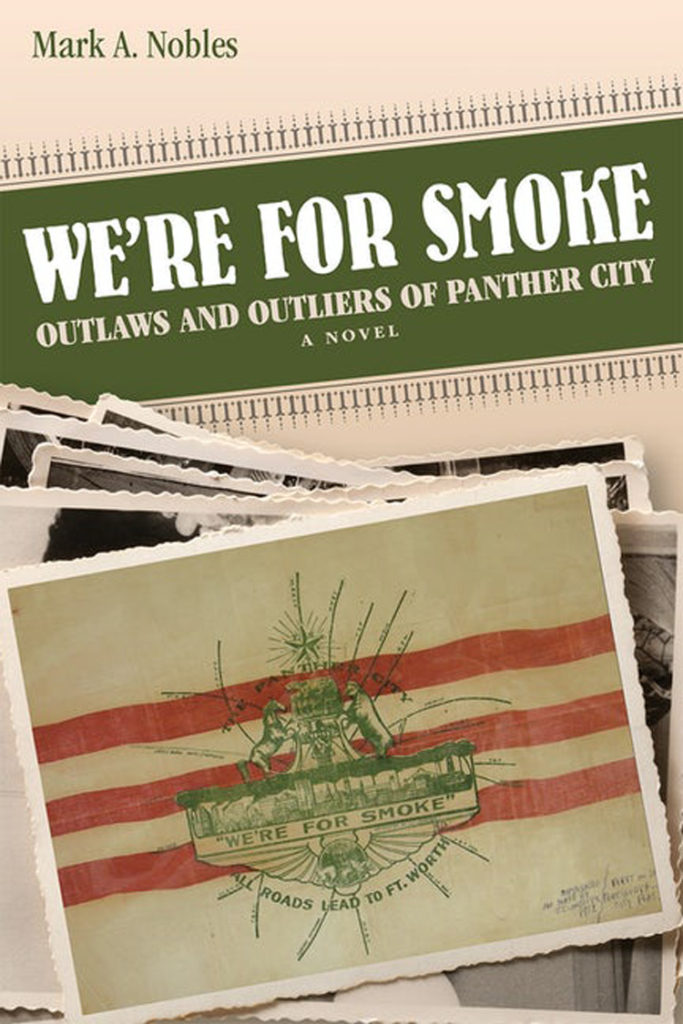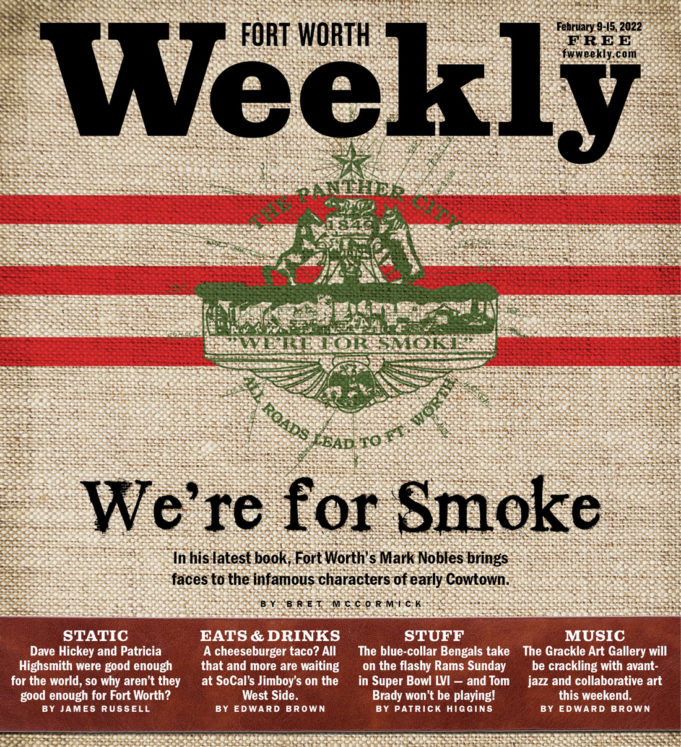Though the title may conjure images of ’60s-era stoners a la Cheech and Chong, nothing could be further from the reality depicted in this novel. Would you believe the first official Fort Worth city flag, circa 1912, featured a skyline practically obscured by smoke and the words “We’re for Smoke. All Roads Lead to Fort Worth”? Cowtown, a.k.a. Panther City, was trying to shake off its rough-and-tumble image as a Western frontier town, courting an influx of factories with their jobs and belching smokestacks. The city fathers wanted Fort Worth to join the growing ranks of affluent cities like Detroit, Chicago, and Philadelphia.

Drawn from actual newspaper articles beginning in 1904 and spanning the years to 1920, Nobles’ novel presents some poignant, vicious, pathetic, and tenacious characters. These are all the more appealing because they are not fictional, though the author may have exercised his imagination in providing additional details of their harrowing lives.
Consider Bessie. Abandoned by her parents as a girl in Hell’s Half Acre, she was quickly forced into a life of theft and prostitution. Bessie was a survivor and eventually became something of a local celebrity for breaking out of the county prison twice and the Fort Worth City Jail so many times that both she and her captors lost count.
Lawman Kid Yates arrived in Fort Worth trying to make a fresh start after killing a man in Desoto, Texas. Yates was acquitted in the killing but shooed away from the town just the same, his wife dead and his two daughters almost more than he could manage. As the years rolled by, Yates’ body count grew, forcing his superiors to reevaluate his position on the police force.
Poor Tom Lee was downtrodden all his life but finally snapped when two of his companions cheated him out of $10 in a game of craps. Vowing revenge, he kicked off a string of events that resulted in a stand-off between law officials and a murderous mob and the most destructive race riot in Fort Worth history.
“The book started with Bessie Williams, the jailbreaker,” Nobles said. “I fell in love with her when an archivist from the Fort Worth Public Library showed me a folder with a bunch of her newspaper clippings. Not long after, I was looking at an exhibit at the downtown library and ran across the We’re for Smoke flag featured on the cover of the book. At that time (1912), if your city was obliterated with smog, it meant you were a thriving, industrial city.”
We’re for Smoke details the struggles of the poorest of Fort Worth’s citizens during the transition from cattle town to modern city. Local authorities often seemed to be more concerned with appearances than with justice, dispensing frontier-style retribution while trying to maintain a façade of civilized sophistication. This book entertains, educates, and enlightens the modern reader as to just how far we have come in the last hundred years.
Mark Nobles was born on Fort Worth’s infamous Jacksboro Highway. A sixth-generation Texan, he proudly claims kinship with Thunder Road’s gamblers, outlaws, and wastrels. He is also the author of Fort Worth’s Rock and Roll Roots and has produced three feature documentaries.













Great review Bret, I am a native Texas and I knew none of this.
Thank you, Bret, for the great review! TCU Press is most appreciative.